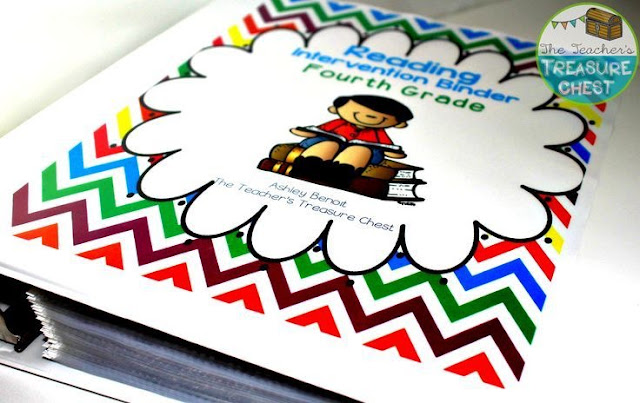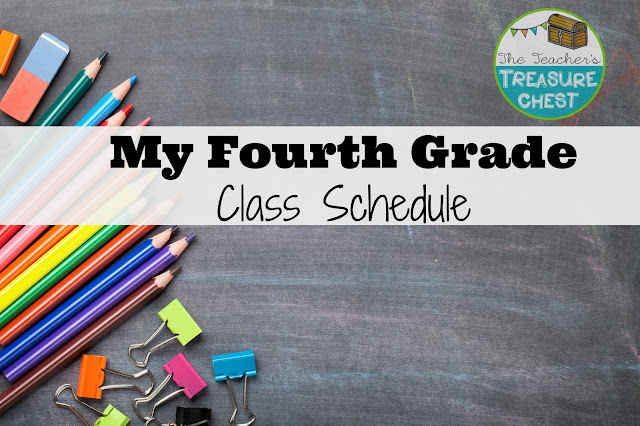Reading Intervention in Upper Elementary
Hey Friends! This last year, I switched to
fourth grade. My group of students were on a variety of reading abilities. How I did ran my
reading intervention groups for fourth grade literally made all of the difference in my students progress. My schedule was so jammed tight just like all of you. I knew I had to fit in intervention and had no IDEA how. My schedule felt so blocked and I was determined to figure out a way to have a separate intervention time. This is the BEST I could come up with. For me, the BEST
intervention happens at a separate time than our regular reading block. I believe that intervention does not replace the guided reading instruction and they should be done cohesively.

I would switch off between reading and
math intervention, depending on my students needs. To start, I assess my students with
running records to determine their instructional reading level. Once I determine their level and independent weaknesses, I determine which section the student would benefit the most from out of our
intervention binder. If I believe the students have a phonics deficiency, than I use this
screener to pinpoint exactly where it is. We had a variety of needs, like most of you. Some students needed to focus on word work and decoding strategies while others needed straight comprehension skills. I also focus on each component of reading so that my students are able to continuously practice those skills. Even in the upper grades, students need to be able to understand why they are doing what they are doing. By teaching the five components of reading, you are giving students the foundation they need in order to be successful readers.

When students struggle with fluency, there are so many ways provided to practice. Through activities like "I Say, You Point" students practice difficult vocabulary/sight words in isolation. Fluency is so important because it helps students transition from just word recognition to comprehension. Once students can read the word accurately, with the correct expression and rate, they are able to cognitively begin to sink deeper into the meaning of the words within the text. Students have to be able to read words accurately, quickly and with expression in order to move on the next phase. That's why the Read It Right activities are so helpful. They give students the opportunity to practice similar words that they will come across in text.

One of the biggest struggles in third and fourth grade, was getting students to think while read and activate their
self monitoring strategies. This is why I firmly believe it is imperative that we teach self monitoring strategies from the primary grades on up.
Vocabulary
Vocabulary is probably one of the most skipped over components of reading. We often feel like once students are strong with phonics, decoding and fluency, then comprehension will naturally follow. However, we are forgetting that if students do not understand or have a deep connection to a word, they can not apply the comprehension strategies. Research suggests that students need 12 organic interactions with a word before they truly understand it. So how to we increase our instruction in vocabulary while still hitting the other components? The first step is EASY. When you are teaching phonics strategies, do NOT just focus on the phonics feature. Be sure to address the words meaning and how it relates to every day life. Do not JUST teach vocabulary in isolation. Embed vocabulary in everything you do.
Another way to increase vocabulary is to model for students how to use different words. I write down three or four words that I use ALL the time. I purposely think of DIFFERENT words or synonyms that mean the same thing to use instead. By showing students a technique for using different words, students can actually apply this idea. Students probably have four to five words that they use over and over each day, encourage them to make their own "replacement list".
My students enjoy playing a game called "Word Detective". Students are given a card and have to offer clues to their partner in order for their partner to be able to determine the word.
What seems like an activity focus on spelling, can easily transition into a vocabulary experience. Encourage students to use different words in different scenarios.
I essentially need to reteach my student how to THINK while reading. Through interactive read alouds, guided reading and intervention time, I focused on explicitly teaching my students how to reading was thinking. Students need to understand the difference between word calling and reading at this stage. Often, they think because they can read such large words, that they are successful readers. As teachers, we need to continue to explicitly teach them so that they can take their awesome word calling skills and dive so deep into the text that they get lost.
Visual aides are so helpful even in a small group setting. There are several ways to use these
anchor charts. You could display them while teaching or have students create a
guided reading or intervention notebook. They could keep the anchor charts to refer back to. This way, they always have a reference point if they need to refresh their memory,
So how do you get your students so deep into a text that they are LOST in it? How to you motivate those readers that are struggling? The key is your intervention time. You see, presenting the material in a different and engaging way is a #GAMECHANGER!
The FIRST thing I teach my students is to always visualize themselves in the story as they are reading. How would YOU feel if this EVENT was happening to YOU? Has this ever happened to YOU? How did YOU feel? If students can make connections or thinking about how they can relate to the story, the comprehension will increase automatically. I taught my students how to
fall in love with reading. This encouraged the lower students to WANT to read and by wanting to read, their readability will increase.
Here's a glance inside my
guided reading lesson plans I used during guided reading time. I wanted this time to be different than intervention so that my students aren't bored and look forward to coming to see me! I needed standards based plans that I could easily use with each individual group's instructional reading level. These plans are written for a
third grade level. I purposely schedule my intervention time separate from my guided reading time. Intervention is not an extension of guided reading.
Each section has an anchor chart to review before teaching the skill.
We included passages levels N-P in this binder and are working on adding more!
Assessment is KEY to any instructional program, so we've included assessments for you to track your students progress.
Teacher tips and instructional guides are included so that ANYONE can use these binders. We often have our paras or parent volunteers use the
binders with one or two students.
I've included data sheets after each section so that you can track your students progress over time.






























